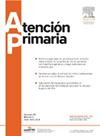Programa educativo para la mejora de conocimientos y del rango terapéutico para pacientes anticoagulados autocontrolados
IF 1.8
4区 医学
Q2 MEDICINE, GENERAL & INTERNAL
引用次数: 0
Abstract
Introduction
Oral anticoagulation Self-control programs have demonstrated efficiency over recent years.
Objective
The aim of the study was to evaluate the level of knowledge and coagulation level of self-controlled anticoagulated patients after an educational program.
Design
A quasi-experimental study, pre-test and post-test.
Site
Health area of the Hematology Service of the Virgen de la Victoria University Hospital (Málaga, Spain).
Participants
Self-monitored anticoagulated patients.
Interventions
Educational intervention about oral anticoagulation knowledge focused on patients that will initiate the self-control program in our consultation.
Main measurements
To check the patient's adherence and coagulation level, we evaluated the Rosendaal Time in Therapeutic Rank (TTRr), both before and after the intervention.
Results
145 patients have been included from 2016 to 2022 with a mean age of 49.18 years (SD 17.24). The mean score for the first test about knowledge was 14.61 (SD 3.26) and the mean score for the second test was 17.01 (SD 2.14) (p < 0.001). Values before and after interventions were also statistically significant (67.46 vs 70.53, p< 0.001).
Conclusions
The results showed that knowledge improved after the training session and the TTR values are better after the training which appears to be an effective action to improve the knowledge about oral anticoagulation in these patients.
[提高自我控制抗凝患者的知识和治疗范围的教育计划]。
简介近年来,口服抗凝药物自我控制项目已显示出其高效性:研究旨在评估自我控制抗凝患者在接受教育项目后的知识水平和凝血水平:设计:准实验研究,前测和后测。地点:维多利亚圣女大学医院(西班牙马拉加)血液科健康区:干预措施:干预措施:口服抗凝药知识教育干预,主要针对将在本诊所启动自我控制计划的患者:为了检查患者的依从性和凝血水平,我们评估了干预前后的罗森达尔治疗等级时间(TTRr):从 2016 年到 2022 年,共纳入 145 名患者,平均年龄为 49.18 岁(标清 17.24)。第一次知识测试的平均得分为 14.61 分(标清 3.26 分),第二次测试的平均得分为 17.01 分(标清 2.14 分)(P 结论:结果显示,培训课程结束后,患者的知识水平有所提高,TTR 值也有所改善,这似乎是提高这些患者口服抗凝药知识水平的有效措施。
本文章由计算机程序翻译,如有差异,请以英文原文为准。
求助全文
约1分钟内获得全文
求助全文
来源期刊

Atencion Primaria
医学-医学:内科
CiteScore
2.90
自引率
8.00%
发文量
156
审稿时长
33 days
期刊介绍:
Atención Primaria es una revista que publica trabajos de investigación relativos al ámbito de la atención primaria de salud. Desde el punto de vista conceptual, Atención Primaria asume el nuevo modelo de atención primaria de salud, orientado no sólo a la curación de la enfermedad, sino también a su prevención y a la promoción de la salud, tanto en el plano individual como en el de la familia y la comunidad. En estos nuevos aspectos que definen el modelo de atención primaria de salud es en los que se centran los trabajos de investigación que publica Atención Primaria, la primera revista de originales española creada para recoger y difundir la producción científica realizada desde los centros de atención primaria de salud sobre cuestiones como protocolización de la asistencia, programas de prevención, seguimiento y control de pacientes crónicos, organización y gestión de la asistencia primaria, entre otros.
 求助内容:
求助内容: 应助结果提醒方式:
应助结果提醒方式:


